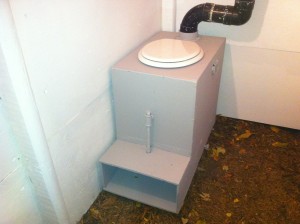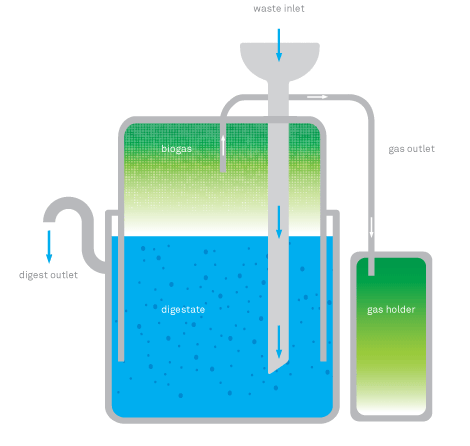In case you missed it, last Wednesday was World Toilet Day. Organized by UN-Water—the United Nations inter-agency mechanism on all freshwater related issues, including sanitation—the goal is to focus attention on the lack of sanitation and access to toilets in developing countries. So how will the 2.5 million people, or more than one-third of the entire global population, that don’t currently have toilets get them?
In comes two startups—Toilets for People and LooWatt—that are solving the need for a sanitary, affordable, off-grid toilet for the world’s poor.
Toilets For People has invented the CRAPPER, an affordable composting toilet for people in developing countries that costs $200. Jason Kass founded Toilets For People in 2012 as a social business that in addition to providing the toilets, trains NGO partners in the developing world how to install and maintain these toilets. So far, Kass and team have been recognized by Columbia University’s Engineering Ventures Competition where they took first place, at this year’s Cleantech Open Northeast regional competition where they received the Global Impact award and were finalists in startup competitions at Wharton, MIT and Harvard.

The Crapper
Toilets For People has a goal focused on deployment, toilets for 400,000 people in the next five years to be exact. This past May, the company raised $10,000 through an Indiegogo campaign to fund pilot programs in India, Nicaragua and Peru and to pay for the mold that will enable them to mass-produce the CRAPPER from plastic.
Kass shed light on the issue of toilet innovation last year when he published an op-ed in the New York Times criticizing the Gates Foundation’s Reinvent the Toilet Challenge, which he believes is too focused on technological marvel and not enough on price. The cost is, afterall, a key element affecting deployment. According to Kass, the 2012 winning toilet cost $1,000, is solar powered and converts waste into energy for cooking. It was developed by a team at California Institute of Technology.
The Foundation does specify a goal of creating a toilet that costs less than $0.5 cents per user per day, but it also aims to fund toilets that achieves a multitude of things:
– Removes germs from human waste and recovers valuable resources such as energy, clean water, and nutrients.
– Operates “off the grid” without connections to water, sewer, or electrical lines.
– Promotes sustainable and financially profitable sanitation services and businesses that operate in poor, urban settings.
– Is a truly aspirational next-generation product that everyone will want to use—in developed as well as developing nations.
UK-based LooWatt is a Gates Foundation grant recipient. The startup has developed a waterless toilet, called the Tsiky Toilet, with an anaerobic digester that produces energy and fertilizer.
The toilet packages human waste in a biodegradable lining material, which is then transported to an anaerobic digester for energy generation. Anaerobic digestion is a biological process in which organic waste is consumed by micro-organisms in oxygen-free environments. As it decomposes, the waste releases biogas.
LooWatt received two rounds of grant support from the Gates Foundation for its pilot program in in Antananarivo, the capital city of Madagascar.
LooWatt has also developed the Loowatt Event System, which combines its Loo Unit, a portable toilet trailer, with a Watt Unit, an optional portable generator that uses biogas to generate electricity and heating at the event site.

Loowatt digester diagram